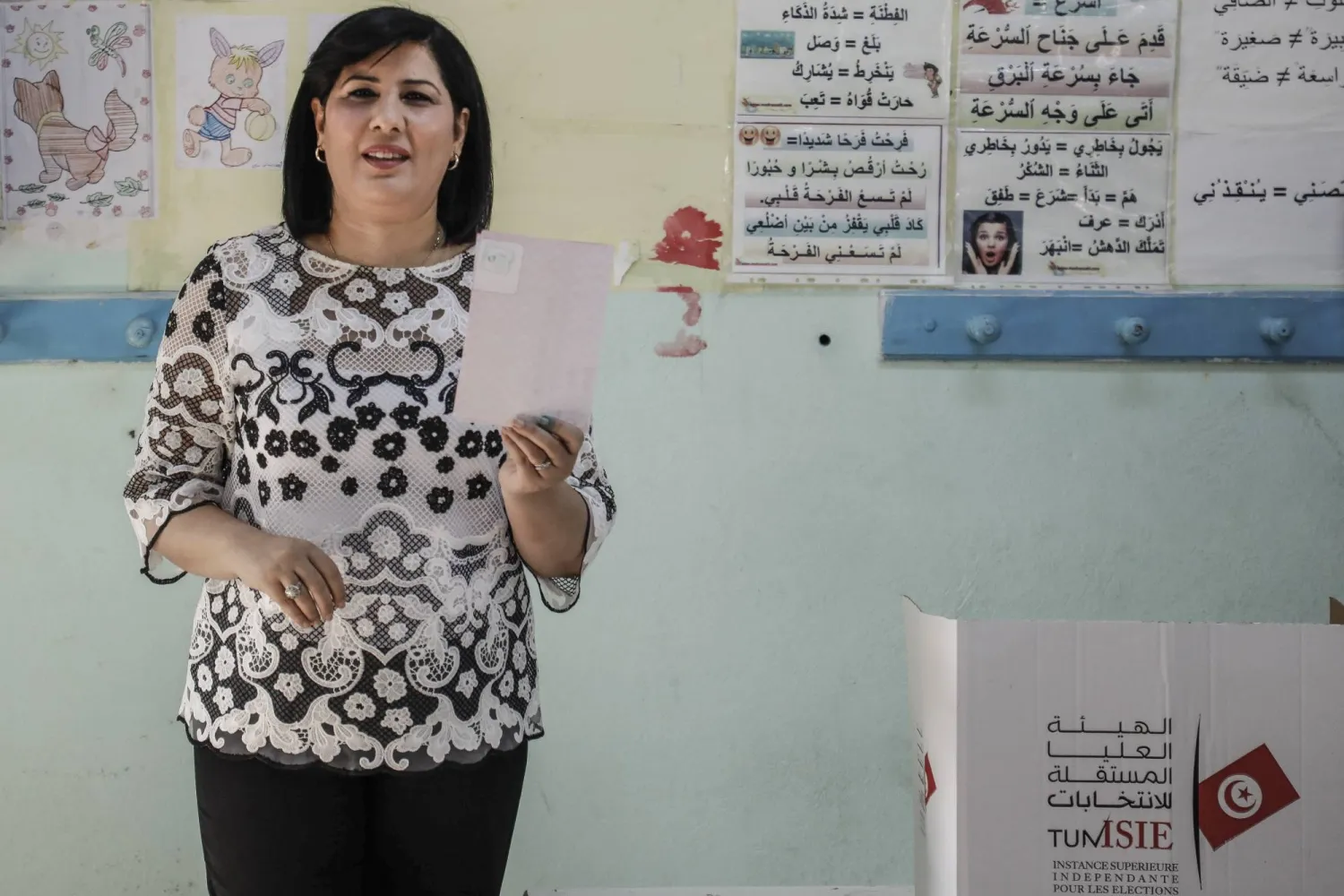Tunisian police have detained leader of the opposition Free Destourian Party (PDL) Abeer Moussi for processing personal data, obstructing the right to work, and assault intended to cause chaos, announced lawyer Aroussi Zgir.
Zgir stated Tuesday that assault intended to cause chaos is a serious charge with severe punishment. Under the legal procedures, Moussi will be initially questioned by an investigating judge.
Moussi, a prominent opponent of President Kais Saied, is expected to be brought to court within 48 hours, and an investigation will be opened into her case.
She will also have the chance to present her case in the presence of her fellow lawyers from the Lawyers Association.
PDL member Karim Krifa said that Moussi was moved to a hospital in Bou-Choucha after her health deteriorated.
Krifa mentioned that he had attempted to deliver medication to her at the detention center, but security services rejected the move.
Party leaders have requested the Public Prosecutor to compel the security officials at the barracks to accept the medication offer.
The Free Destourian Party strongly condemned the "serious and arbitrary violations" following the arrest of its leader.
The party demanded her immediate release and denounced the President's control over administrative institutions, undermining the principle of equality among citizens before public facilities and obstructing legal actions.
They also warned against any attempts to fabricate legal reasons to prevent Moussi from participating in the presidential elections.
A few days ago, Moussi announced she was preparing to run in the upcoming presidential elections scheduled for the end of 2024.
Immediately after her arrest, Moussi's lawyer Nafaa Laribi claimed she had been "unlawfully detained."
Laribi reported that Moussi had been at the Presidential Palace in Carthage to file a grievance but was then taken to the La Goulette police station, where she was detained.
A Moussi aide said in a video on Facebook that she was "kidnapped" while outside the Carthage Palace.
In front of the police station, dozens of angry Moussi supporters protested, shouting slogans against Saied amid a heavy presence by police that cordoned off the building.









